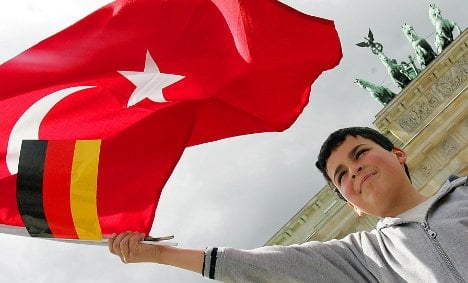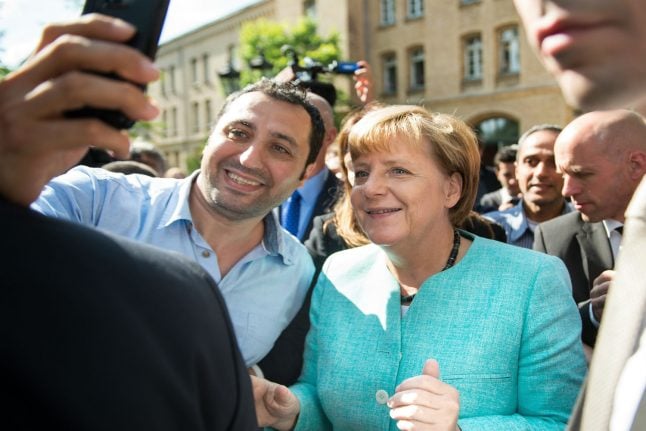Sarrazin, who presented his controversial new book in Berlin on Monday, faces expulsion from the centre-left Social Democrats and losing his post at Germany’s central bank for saying Muslim immigrants threatened the country’s future and claiming Jews are genetically different than other people.
The cantankerous Bundesbank official, famous for his politically incorrect outbursts while serving as Berlin’s finance minister, had hoped to spark a debate about integration and immigration. But the consensus among Germany’s leading newspapers on Tuesday was that he had done neither himself nor the country’s political discourse any favours.
The Cologne daily Kölner Stadt-Anzeiger pointed to a pair of genuine “provocateurs,” the Greens’ Joschka Fischer and the Bavarian Christian Social Union’s Franz Josef Strauß, each of whom was at times controversial but who ultimately – unlike Sarrazin – energised the political debate.
“Democracy tolerates such challenges – indeed it needs them, for the provocateur poses uncomfortable questions, he brings out truths that some people don’t want to see. And ideally they are even entertaining.
“Thilo Sarrazin has nothing to do with this. And this Bundesbank board member with the pinched lips is certainly not entertaining.
“His truths are a precarious and well-worn mix of xenophobia, of murky statistical games … Sarrazin is no provocateur, he is a demagogue.”
The left-wing daily Die Tageszeitung wondered if there was a silver lining to the Sarrazin affair: a reminder that racism did not always come in the form people expected.
“The Sarrazin case is a healthy shock for Germany. It is high time to rid ourselves of the illusion that racist convictions always arrive in bomber jackets and combat boots. As we see, they can also thrive splendidly in bankers’ suits and on executive floors.”
Unlike other opponents of Islam, Sarrazin was claiming not just the existence of a ‘clash of cultures’ but of cultural and social differences based on genetic differences. And it was this racial theory that was most disturbing for Germany, it wrote.
“What should we do when, 65 years after the ban of Mein Kampf a racial theory tract once again rises to be a bestseller?”
The conservative Frankfurter Allgemeine Zeitung said Sarrazin had only himself to blame for his current predicament, however, emphasised the issues he raised needed to be addressed.
“Someone speaking of a Jewish gene in Germany can no longer be helped,” wrote the paper. “But tossing him into the camp of racists and anti-Semites will do little good.”
The FAZ said as long as the country’s political parties refused to address the issues of immigration and integration, German society would continue to be divided and people would turn away from politics.
“The debate about Sarrazin shows just how strong this alienation has already become,” the FAZ wrote.
The right-wing daily Die Welt concurred, saying Sarrazin had sabotaged the issues he was trying to draw attention to.
“The true casualty of the Sarrazin debate is that citizens get the feeling politicians don’t even want to talk about integration,” commented the paper. “Sarrazin is already radioactive. Anyone who wants to defend him publicly now has to have a Muslim background.”
The centre-left Süddeutsche Zeitung criticised Sarrazin’s comments, but warned against kicking him out of the SPD or relieving him of his post at the Bundesbank.
“Dismissal instead of dialogue doesn’t instil confidence and it would simply create a martyr who should have been better debated,” the Munich daily wrote. “But he highlighted a problem that will exist long after the outrage has subsided: the enormous integration deficit by Germany’s Muslim minority.”
The paper said, however, that Islam is not to blame for these problems, pointing instead to attitudes putting religion over the liberal values of the state.
“There’s no alternative to taking this path together with Muslims in Germany,” Süddeutsche Zeitung opined. “Integration is only possible when we avoid painting horror scenarios and give Muslims a real chance.”



 Please whitelist us to continue reading.
Please whitelist us to continue reading.
Member comments